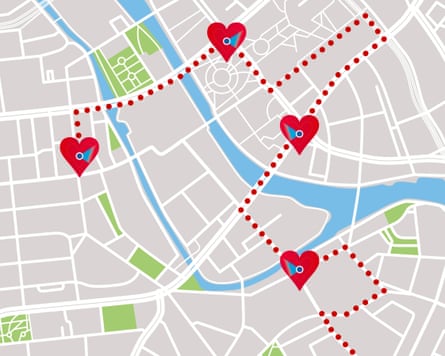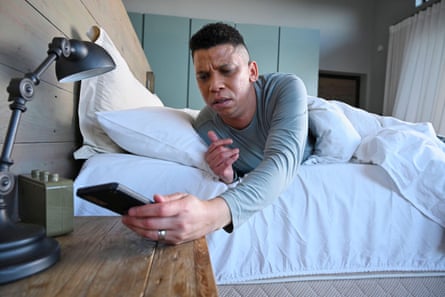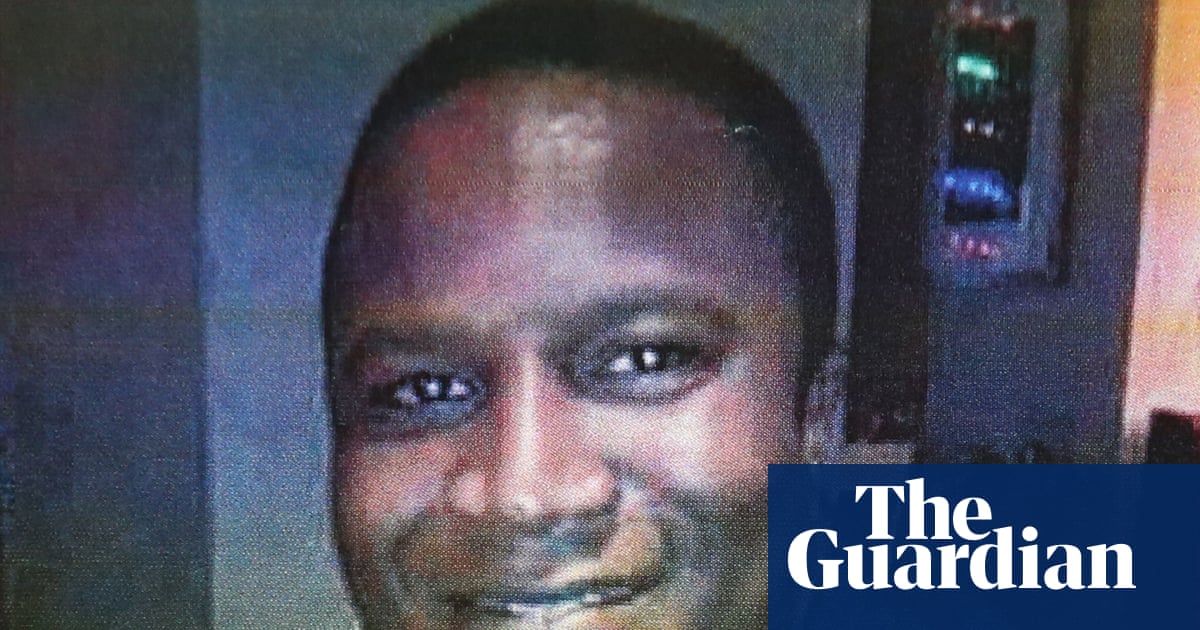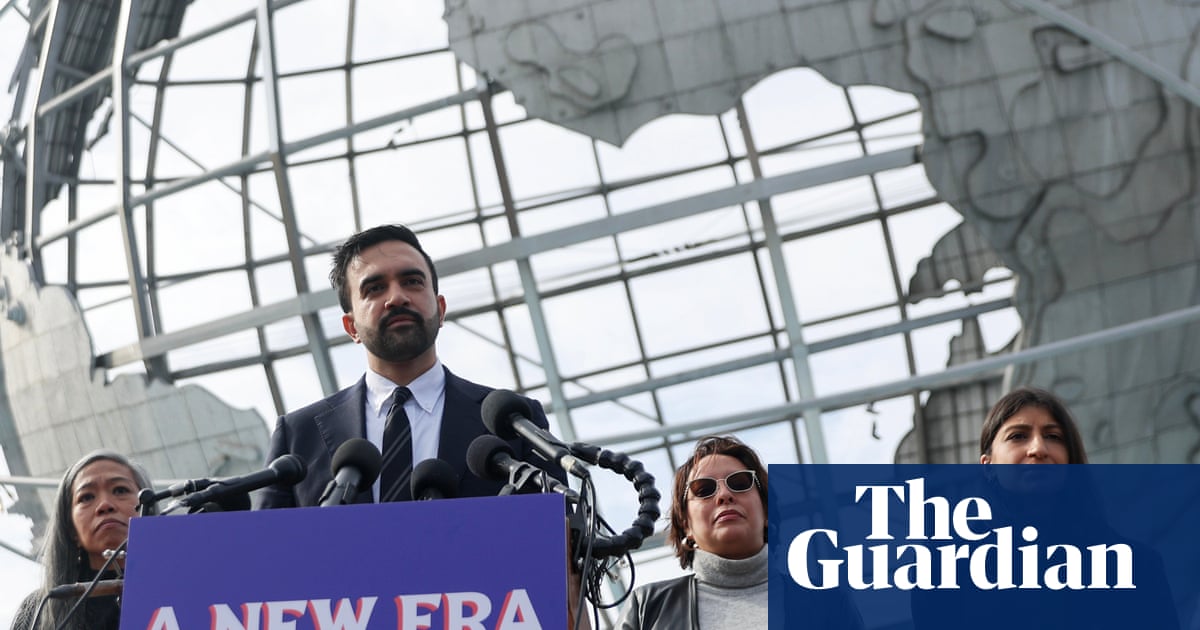When Alan and his partner got together, they were “both in failing marriages”. “If location tracking had been an option for our ex-spouses in those days, things would have been rather different,” he says. Alan, from north Oxfordshire, is still a fan of location sharing, despite the fact it would have once thwarted his romantic indiscretions. “I’m sure we would have still ended up together, but navigating the clandestine meetings would have been trickier.”
The ability to share your location on your mobile phone has become a common way to keep tabs on friends, family and romantic partners. For some, it has become the signifier of a serious relationship: last year, the New York Times called location sharing “the final frontier in digital expressions of coupledom” and likened it to the Instagram “hard launch” (effectively announcing that you’re in a relationship by posting a photo of your partner for the first time). Others location-share on a whim and find themselves able to track the whereabouts of people they haven’t seen in person for years.
But while it may have become the norm in certain circles, many remain resistant to what can feel like yet more digital surveillance. Just because we have the ability to know where our loved ones are at all times, does that mean we should?
I’ve never shared my location with anyone beyond time-limited sharing on WhatsApp – usually while attempting to meet someone in a vague location such as the park. But I agree to try it out with my partner for a week in order to gauge the appeal, or lack of. We’re often in different cities – but I feel I usually have a good idea of his whereabouts, and vice versa. I’m not expecting any surprises.

After consenting to mutual location sharing via the iPhone’s Find My app – while sitting in the same room – I notice that we also have the option to set up notifications. He’s keen to know that I’ve got home safely when we’re not together – and safety is certainly a big part of the appeal for many users – so I allow the app to alert him each time I reach my front door. In a disappointingly heteronormative and retrograde move, I’m more interested in knowing when he goes out – where’s he off to now? – and set up my own notifications accordingly.
Apple’s Find My function launched in 2009 under the name Find My iPhone, using GPS technology to help users locate missing devices. Find My Friends was launched as a separate app in 2011, and reportedly marketed to anxious parents who were keen to know the whereabouts of their children. Speaking to people who habitually use location trackers, this still seems to be one of the primary uses of these kinds of apps, as is tracking the location of elderly parents; the emphasis with both is on safety. When it comes to friends and partners, however, motives are more varied, ranging from curiosity to coercion.
The two Apple apps were merged in 2019, and simply called Find My. Google’s Find Hub, formerly known as Find My Device, performs a similar function on Android, while apps such as Life360 offer a “comprehensive solution for families with mixed device environments” – ie a blend of iPhones and Android phones. The official X account for Life360, incidentally, feels very much geared towards younger generations, with posts such as, “i love it when someone says they checked my location. like thx for checking on me” and “She follows you on Instagram and me on Life360 … we are not the same.”
This makes sense: a recent Australian survey found that nearly one in five young people (18-24 years old) think it’s OK to track their partner whenever they want. Having grown up with the internet, gen Z are, generally, more comfortable sharing their data online; Snapchat, the social media platform notoriously most popular with younger users, has long incorporated location sharing with its Snap Maps feature.
But Joanna Harrison, a couple therapist and the author of Five Arguments All Couples (Need to) Have, believes location sharing can threaten the “balance between independence and togetherness” that is important in all relationships, particularly romantic ones. “It would be a shame if these apps took away an opportunity to share the details of each other’s independent lives because they already knew them,” she says. “There’s also a part of me that feels that a bit of romance is lost when you know, to the second, where someone is. What about the satisfying feeling of longing to be met when you know someone is arriving, but you don’t quite know when?”
For Alan, 75, it’s a practical measure: he and his partner mutually enabled location tracking on their phones many years ago. He says it’s useful for predicting when the other is on their way home – especially when working irregular hours, with lengthy commutes. Being able to follow each other’s journeys gives them peace of mind, and makes it easier to time the cooking of meals. “The other way we use it is if one of us spots that the other is in town,” he says. “We can ask them to pop into a shop to get something.”
This is less useful for me, since my partner lives in Glasgow while I am regularly in London for work. Even so, it is interesting – concerning? – to notice how quickly Find My joins the roster of apps I open routinely, often on autopilot. Instagram, Gmail, Vinted, Weather, Find My. I start to understand why so many people describe it as comforting. I follow my partner’s little blue dot around a parkrun; I see him popping to the shops, to the dentist. I feel a pang of jealousy when he visits my favourite bakery without me – but if location tracking has replaced my doomscrolling, it does feel relatively less anxiety-ridden.

Of course, that’s not the case for everyone. When I tell (broadly millennial) friends about my experiment, not one of them offers to share their location with me. In a way, I’m relieved: I can only imagine the fomo spawned by seeing people out, together, without me. I imagine that, if it was still enabled, the temptation to sneak a peek at an ex’s location would be tantamount to browsing their new partner’s Instagram profile: you’re only torturing yourself.
The tech itself is not infallible. “My husband and I share our locations with each other,” says Emily, 33, from London, “and mostly it isn’t an issue – although he did once message me, panicking, when I was heavily pregnant and my location showed me being in a hospital.” She was, in fact, on a train, travelling past the hospital.
Equally, my partner is usually notified that I am home when I am still almost five minutes’ walk away – close to being safely through my front door, yes, but no guarantee. Then again, the alternative is perhaps no more reliable: after a night out, a friend messages to check I got home safely, as is standard procedure among so many women. Yes, I reply, all good. But I’m in my PJs, in bed – and could easily have already been asleep.
Some research suggests that online surveillance “could support intimacy in couples with limited interactions, due to geographical separation or psychological reasons” – although this was not limited to location tracking specifically. That said, the domestic abuse charity Refuge also reported that, in 2019, 72% of women accessing its services said they had been subjected to technology-facilitated abuse. This was not limited to location tracking, however, and, as the digital rights advocate Samantha Floreani points out, other research suggests that “the notion of careful surveillance can form intimacy in ways that complicates typical ideas of privacy”. On a recent episode of the Modern Love podcast, the host, Anna Martin, likened being able to see someone’s location to having a superpower. “But like any superpower,” she said, “it must be used responsibly. And sometimes, that means just turning it off.”
Nedra Glover Tawwab, a relationship therapist and the author of books including Set Boundaries, Find Peace, shares her location with her husband. She often travels for work and “it gives me comfort knowing that he knows where I am, without us having to talk or text about it”, she says. “When I travel with friends, we often share our locations to ensure we remain connected when we separate.”
I ask whether she believes location sharing is a sign of trust within relationships – or distrust. “If someone is constantly monitoring your every move, it constitutes a violation of your privacy, even if you share your location,” she says. It’s not so much the tech itself but how it is used that is the indicator of trust. “Checking to see if someone’s plane landed is different from calling them each time they leave the house to let them know you’re watching.”
For Harrison, “the key is how it is agreed on in the first place”. If there’s an imbalance – one person uses it far more than the other, or “uses it to handle anxieties about where their partner is” – then this could foster distrust within couples.
I come to view it like any voluntary compromise in privacy where trust plays a role: my partner knows my phone’s passcode, for example, but I’d still be miffed to find him riffling through my messages. Of course, plenty of people wouldn’t dream of sharing their location (or their passcode, for that matter). Various friends look at me in horror when I tell them that I’m trying it out and say that they could never – despite not living particularly duplicitous lives.
“My girlfriend and I decided to switch on Find My in case something happened to one of us on a night out when the other wasn’t there,” says one Guardian reader, who wished to remain anonymous. “Neither of us uses it to keep tabs on each other, but I’ve found the idea of it slightly worrying, as I’m usually quite conservative about my digital privacy. I’ve felt worried that, if I were to suggest switching it off, my girlfriend might suspect I’m looking to cheat on her.”
This, I suspect, may be one of the more common problems with location sharing. I’ve been wondering when – or if – my partner and I will renege on our own agreement. And, if we do, will I feel free from being surveilled – or will I miss the security of feeling that I am never truly alone?

He, it turns out, had assumed we would turn tracking off once the week was up; admittedly, he keeps forgetting it’s on, only being reminded when he receives a notification. This seems a risk for anyone who shares their location without setting up such alerts – although, personally, I’d rather not add to the near-constant stream of notifications already pinging away on my phone.
“Having a challenging conversation about not wanting to share your location any more can seem like a blow to the relationship,” says Tawwab. “Whatever the reason, it can seem like a back-pedalling act.” She notes that declining to share with someone can risk leading them to think you have something to hide – but stresses that total privacy is your right. To this, I would add that no amount of tracking is likely to deter a deceitful partner; there’s always a way around it. “We operated fine in the world without sharing our locations,” says Tawwab. “So if not sharing is your preference, you don’t have to share, even if the other person chooses to share with you.”
Harrison agrees that it’s not for everyone. “The key thing is to think about what it means to use the apps for each of you and to explore any anxieties, concerns and hopes for it. In a sense, this is a conversation any couple would benefit from having, whether or not they use the apps: how are we keeping in touch with each other when we are apart, and what are each of our expectations here?”
Location sharing may have its benefits, but it is easy to see how something might be lost, too. When I message friends to ask if they got home OK, it’s also me letting them know that I had fun, that I hope to see them again soon, that I love them.
“Clearly some people find location sharing convenient and helpful,” says Harrison. But, “it is a bit of a shame to miss out on the human connection of a message that says: ‘I’ll be home in an hour, on my way.’”
Some people featured in this article responded to a community callout. You can contribute to open callouts here

 3 months ago
102
3 months ago
102

















































